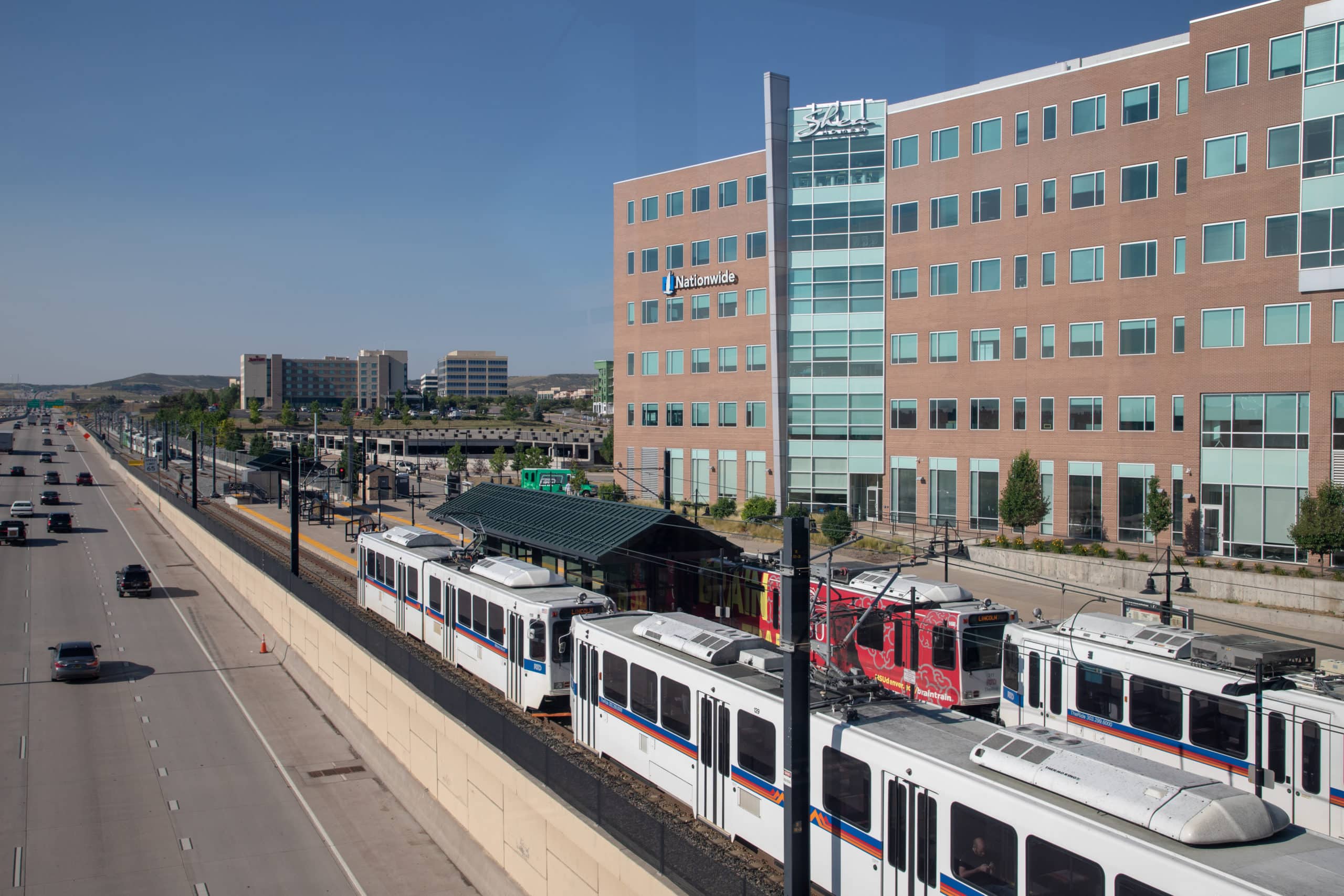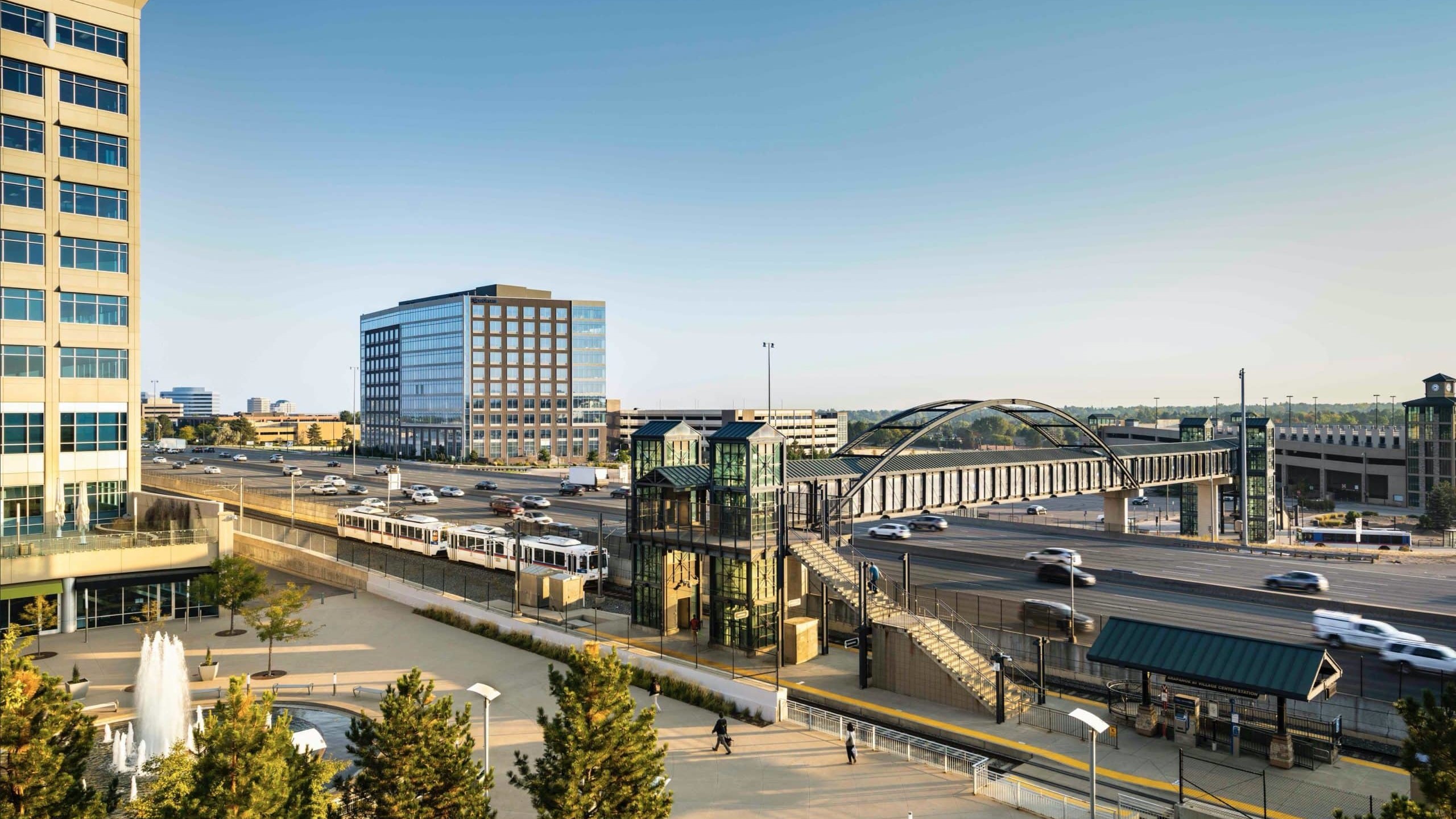
The recently passed Infrastructure Investment and Jobs Act represents an enormous opportunity for local jurisdictions to invest in various infrastructure projects to enhance the economy in their areas. Among other funding, Colorado expects to receive at least $3.7 billion in federal highway money and $225 million to repair and replace aging bridges in the next five years. Here is a quick overview of some of the other funding the state hopes to access:
- $917 million for public transit,
- $57 million for electric vehicle (EV) charging stations,
- $100 million for broadband expansion,
- $16 million to build up cyber security,
- $35 million for wildfire mitigation,
- $688 million to improve water infrastructure,
- $432 million for airports.
As both an economic development organization and transportation management association (TMA), we at Denver South see great potential within these additional pots of funding. Denver South is in the early stages of discussion with our local jurisdiction partners about their plans and how this will support the regions infrastructure and further elevate businesses in the region. There are also around 150 competitive grants within the Bipartisan Infrastructure Framework that local jurisdictions can apply for to fund major transportation projects, bridges, and electric vehicle charging stations. Colorado will also have the chance to apply for $2.5 billion in grant funding dedicated to EV charging in the bill. Denver South expects to see significant advances in mobility and infrastructure as our jurisdictional partners evaluate how to maximize the funding opportunities ahead.
Daniel Hutton, Director of Transportation and Mobility at Denver South, explains what this could mean for the region: “We at Denver South are very excited about the opportunities made possible by the infrastructure funding bill. With a variety of major transportation links converging in our region, funding aimed at improvements to road infrastructure, public transit, and the electrification of transportation will have a significant impact on what Denver South can offer. This kind of major investment is invaluable to laying the groundwork for the future of transportation in Colorado.
Denver South plans to work with our partners to secure funding aimed at supporting the region’s strategic priorities. These include enhancing mobility through more bicycle and pedestrian infrastructure, and last-mile solutions to and from the light rail; expanding the uptake of electric vehicles through charging equipment and EV/AV fleet deployments to support transit; and developing Intelligent Transportation Systems, such as smart traffic signal coordination systems to reduce traffic jams. We anticipate partnering with our local jurisdictions to explore ways to supercharge our efforts towards a more connected, resilient, and sustainable future.”
Suggested Reading:
TMA Board Chair Jackie Millet, Mayor of the City of Lone Tree, shared her perspective on what the potential funding could mean for her city: “We are looking forward to the local and federal funding opportunities ahead. This funding will allow our cities and counties to continue to invest in multi-modal options for those who live, work and visit our region. For the City of Lone Tree, we anticipate we will prioritize projects such as the Lincoln and I-25 interchange, expanding our smart transportation with traffic signalization and synchronization and bike, and pedestrian improvements. The mobility of the future starts with strong and proactive investments, which is what the Infrastructure and Transportation bills will allow us to do.”
We are looking forward to supporting and aligning ourselves with our jurisdictional partners and their priorities. Stay tuned for more news on the plans Denver South jurisdictions have for this funding. Exciting times are on their way for Denver South!

